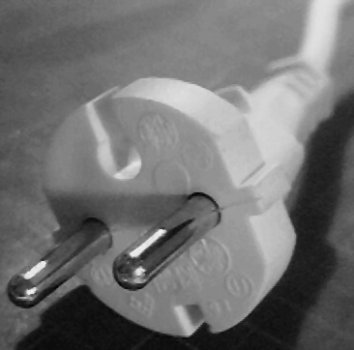Any chance you have evidence of this or are you speaking anecdotally only? Could it be the case usb c and lightning have the same failure rate?
I personally don't. However, I have not had 1 lightning cable go bad on me. Same for USB-C. However, I'm not an animal with my stuff so, EMMV. I do prefer the lightning connector. USB-C having that thin piece in the middle of the connection just looks fragile.
Well it is considereing it’s a philosophical disagreement on ownership. The phone and software contained on the device is seen as private property of the individual who purchased it. Allowing Apple to dictate how that’s done is antithetical to the definition of ownership
Many of the things within the phone (Software) is licensed. So full ownership isn't as black and white as it would appear based off just purchasing it. I understand the EU doesn't view Licensing the same as the US. But, generally you don't own the software or the technology that makes up the hardware. I.E you have a Qualcomm 5G modem within the phone. You don't own the tech that makes the chip to provide 5G service. You have a right to use it as is. You can if you know how to, modify it. However, you can't resell your modification. So you have the right to mess with it as you see fit. Apple nor anyone else have to make that process of messing with it, easy or technically feasible to you. Another example would be to say you have full rights and ownership to take the iPhone and drop it into the deepest part of the ocean. Its yours. But, to dissect the device and re-work it to your liking, sell it for profit isn't.
Personal responsibility my friend. You don’t have the responsibility to help technically illiterate people. Phishing and clicking the wrong link in an email is a bigger threat than installing harmful software.
Apple "kind've" operates on making it simple for the end user. It's what makes them Apple and not Microsoft.
They don't even want the perception that it would be that easy to get hacked on their platform.
Come back when an android phone can run iOS software you already purchased, until then they aren’t even indirectly connected.
Generally speaking you can't run Microsoft Windows software on Mac OS. Or Android on iOS or Linux on any other OS directly. I know Windows has a subsystem for Linux now, but I can't just install x86 coded software on ARM and so forth. Not without translation (Rosetta or whatever Windows calls it).
However, most software is free to download on iOS and I'm sure Android. And more so they use another account to ID the user using it. They tend to have versions for both iOS and Android. So just logging into it will get you back to where you had been on the other.
For the software that is exclusive to their respective platforms. That isn't just an issue on mobile devices.
The market in question is for developers, if they want to target android users, they can as many options are available. But if they want to target iOS individuals, then they are prevented from doing that in every way except by following apples rules.
And yet somehow, they seem to be doing pretty well on iOS with those rules.
It’s a guideline, to make sure a fine won’t actually bankrupt a company and to discourage future violations of the law. Having a fixed sum on the books makes no sense and if a company manages to produce leprechaun magic and do clever book keeping to move all the revenue outside of EU, then you could let’s say theoretically go from earning a yearly revenue of 1 billion € a year to barely 10million € a year and wipe away large parts of the fine.
But if it’s the companies total revenue irrespective of its origin then it becomes harder to escape that fine.
Those leprechauns. Always moving their pots of gold.
I'll stick with let the EU eat cake and pull out of the market. Specifically, the iPhone. Since that's the only thing in question here.



